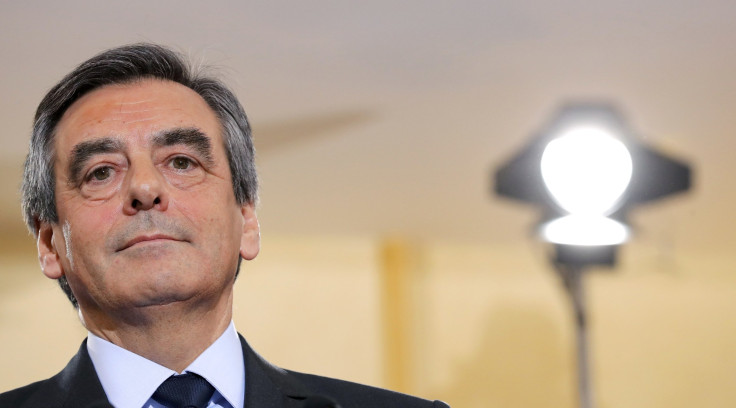Who Is Francois Fillon? Winner Of France's Center-Right Primary Expected To Face Marine Le Pen

Socially conservative former Prime Minister Francois Fillon defeated centrist former Premier Allain Juppe in France’s center-right presidential primary Sunday, setting up a showdown next year with Marine Le Pen, leader of the far-right, anti-immigration National Front.
With 90 percent of the vote counted, Fillion, 62, led the 71-year-old Bordeaux mayor 67 percent to 33 percent for the Les Republicains nomination.
Juppe conceded.
#urgent Primaire de la droite: Alain Juppé reconnaît sa défaite et «félicite François Fillon pour sa large victoire» https://t.co/Ee1iy8z13q
— RFI (@RFI) November 27, 2016
The final round of voting is in May. Ahead of the final round, the left-wing Socialist party will hold its primaries in January amid signs Prime Minister Manuel Valls will challenge President Francois Hollande if he decides to seek re-election. Balloting in April will determine the two candidates who will face off the following month.
Fillon’s support soared after he penned a book on the dangers of “Islamic totalitarianism” and the need to defend France’s national identity.
Fillon pledged to unite the party in his victory speech, saying the nation has a chance now to reassert its position in the world and undo what he sees as the damage caused by Hollande, whose administration he called “pathetic.” He called for former President Nicolas Sarkozy and Juppe to help him succeed.
"I must now convince the whole country our project is the only one that can lift us up," Fillon said at his campaign headquarters.
“I will defend those values and we will share them with everyone who, with their differences, loves France.”
The election campaign is expected to revolve mainly around economic policy. As the eurozone’s second largest economy, France has faced high unemployment, hovering at 10 percent. In the last two years, the country has seen 230 people killed in terrorist attacks.
Reuters said the election is seen as another test of anti-establishment anger in the wake of the Brexit vote in Britain and Donald Trump’s election in the United States. During the campaign, Fillon warned France is on the “verge of revolt,” and pledged to reduce the welfare state, cut taxes and business regulations, and eliminate a half-million public sector jobs — a move Le Pen’s supporters have called insane.
Many of Fillon’s ideas overlap with Le Pen’s. He emphasizes the “Christian roots of France,” and is a strong proponent of “sovereignty” and “patriotism.” Fillon has taken a hard line on immigration and Islam, and opposes “American imperialism.” During the final debate, he denied France is a multicultural country.
“Fillon presents us [the far-right] with a strategy problem. He’s the most dangerous [candidate] for the Front National,” Member of Parliament Marion Maréchal Le Pen, the niece of Marine Le Pen, told reporters this week.
But Fillon is not a populist, Jean-Yves Camus, an expert on the French far-right, told the Guardian. The National Front has attacked Fillon as a snob and political has-been.
Fillon, an admirer of the late British Prime Minister Margaret Thatcher, is on first-name terms with Russian President Vladimir Putin. He has styled himself as a Catholic traditionalist, appealing to the religious right, and opening himself up to attacks painting him as a “medieval reactionary,” the Guardian reported.
© Copyright IBTimes 2025. All rights reserved.




















